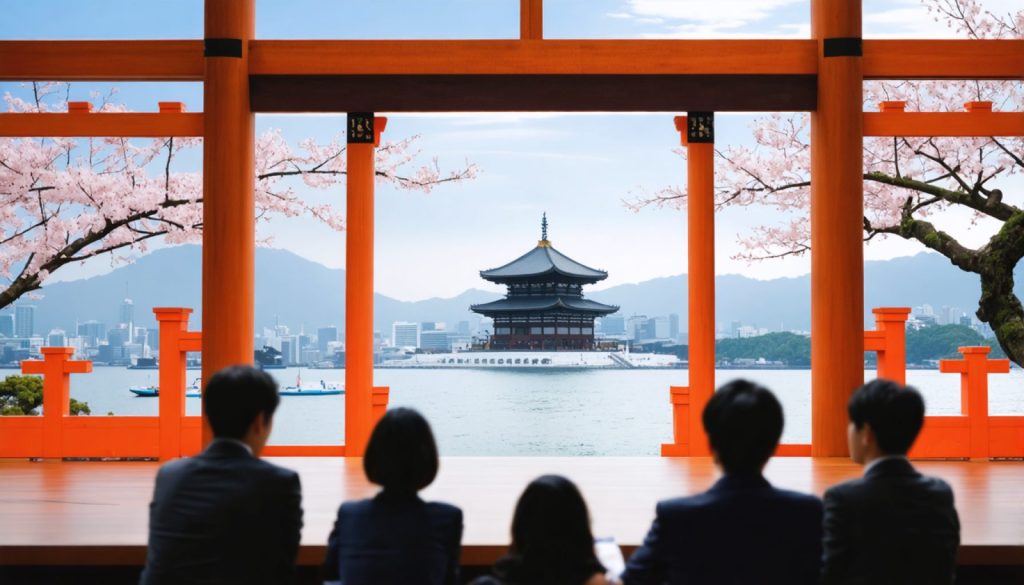
- Japan’s tort law emphasizes restorative justice, focusing on compensation rather than punishment.
- Resolutions in tort cases often involve dialogue and mediation, preserving community harmony over court battles.
- The Civil Code reflects Japan’s preference for harmony, with damages assessed based on actual loss rather than as a deterrent.
- Japan’s legal approach emphasizes swiftly restoring balance with minimal discord, offering a global lesson in humility and compassion.
https://youtube.com/watch?v=pO5ewRxJqUY
Japan’s tort law landscape unveils an intriguing tapestry where tradition weaves seamlessly with modern legal principles. Picture a bustling Tokyo street—a city where technology hums alongside age-old temples. Here, the notion of personal responsibility manifests richly within the legal fabric of tort law, emphasizing restorative justice over punitive measures.
Vibrant Street Scene
Imagine this: Asoba, a middle-aged shop owner, steps outside her vibrant storefront, the aroma of freshly brewed tea trailing behind her. Unbeknownst to her, a delivery cyclist swerves to avoid a pedestrian, sending packages tumbling directly into Asoba’s feet. She stumbles, revealing a complex web where Japanese tort law springs into action.
Restorative Justice at Play
In Japan, tort law gravitates towards compensating victims rather than punishing the wrongdoer with exorbitant damages. Asoba, guided by local police mediation, seeks to resolve the matter through dialogue and compensation, a solution rooted in decency and equitability. This embodies Japan’s cultural preference for harmony—preserving community ties takes precedence over courtroom disputes.
Harmony Versus Confrontation
Japan’s Civil Code legally supports this inclination towards restoration, with damages reflecting the true loss rather than serving as a deterrent or punitive measure. For example, compensation might include medical expenses, lost income, and an amount for pain and suffering. The emphasis is clear: remedy the injury rather than retaliate. Disputed cases rarely reach the courts, highlighting the country’s preference for amicable resolutions through mediation and arbitration.
The Takeaway
Japan’s approach offers a critical message: Justice need not scream through the gavel when it can whisper through understanding. This tort law ethos encourages parties to restore balance swiftly, honorably, and with minimal discord.
Here, amid neon lights and tranquil parks, Japan teaches a global lesson in humility and compassion. The lesson reverberates through its bustling cities and serene countryside—true justice finds its roots in repair, not retribution.
Japan’s Tort Law: A Harmonious Blend of Tradition and Modernity
Exploring the Characteristics of Japanese Tort Law
Japan’s tort law is uniquely characterized by a blend of traditional values and modern legal principles, emphasizing restorative justice over punitive measures. This stands in contrast to legal systems, such as that of the United States, where punitive damages often play a critical role. Here are some additional insights into Japan’s approach to tort law that highlight its distinctiveness and efficacy.
How Japanese Tort Law Operates: A Guide
1. Cultural Underpinnings: At the core of Japan’s preference for restorative justice is the cultural emphasis on maintaining harmony and community ties. This cultural context often discourages confrontational legal proceedings and encourages mediation and arbitration.
2. Compensation Mechanism: In Japan, compensation under tort law typically covers actual losses suffered by the victim. This encompasses medical expenses, lost income, and compensation for pain and suffering. The focus is on restoring the victim to their pre-injury state rather than punishing the wrongdoer.
3. Mediation over Litigation: Legal disputes in Japan often undergo mediation facilitated by local police or community figures, aiming for amicable resolutions. Litigation is considered a last resort and is comparatively rare.
4. Legal Framework: The Civil Code of Japan supports this restorative approach by structuring damages in a way that reflects real loss without punitive excesses.
5. Insurance’s Role: Insurance plays a significant role in addressing personal injuries and property damage, effectively supplementing the tort system in providing compensation and facilitating settlements.
Real-World Use Cases: Applying Japan’s Tort Law Principles
– Workplace Injuries: In cases of workplace accidents, employers and employees often seek a mediated settlement with insurers to cover medical costs and lost wages, preserving employer-employee relationships.
– Traffic Accidents: Traffic mishaps are typically resolved quickly through insurance claims, with assistance from mediation when necessary, avoiding prolonged legal battles.
Market Trends & Industry Insights
– Increasing Influence of ADR: Alternative Dispute Resolution (ADR) mechanisms, including mediation and arbitration, are gaining traction globally. Japan serves as a model with its emphasis on ADR in resolving disputes without resorting to litigation.
– Legal Reforms: There is continual refinement of Japan’s legal framework to enhance the efficiency and effectiveness of its tort law system, adapting to changing societal needs while respecting traditional values.
Controversies & Limitations
– Limited Deterrence: Critics argue that the lack of punitive damages may lead to insufficient deterrence against reckless behavior and negligence.
– Cultural Constraints: The focus on harmony may sometimes overshadow individual rights or lead to under-compensation, particularly in complex or serious cases.
Actionable Recommendations
1. For Individuals: Engage with local mediation services if involved in a dispute, aiming for a harmonious resolution. Ensure you understand the insurance coverage available to you in the event of a personal injury.
2. For Businesses: Implement risk management strategies and adequate insurance coverage to mitigate the impact of potential tort claims while fostering a culture of safety and responsibility.
3. For Legal Professionals: Familiarize yourself with alternative dispute resolution practices and cultural nuances to effectively navigate the Japanese legal landscape.
Japan’s tort law system offers an instructive perspective on handling disputes with a focus on restoration and community harmony, presenting a valuable paradigm for other legal systems to consider.
For further insights into Japan’s legal system, explore the official Japanese judicial websites for comprehensive resources on its tort law principles.



